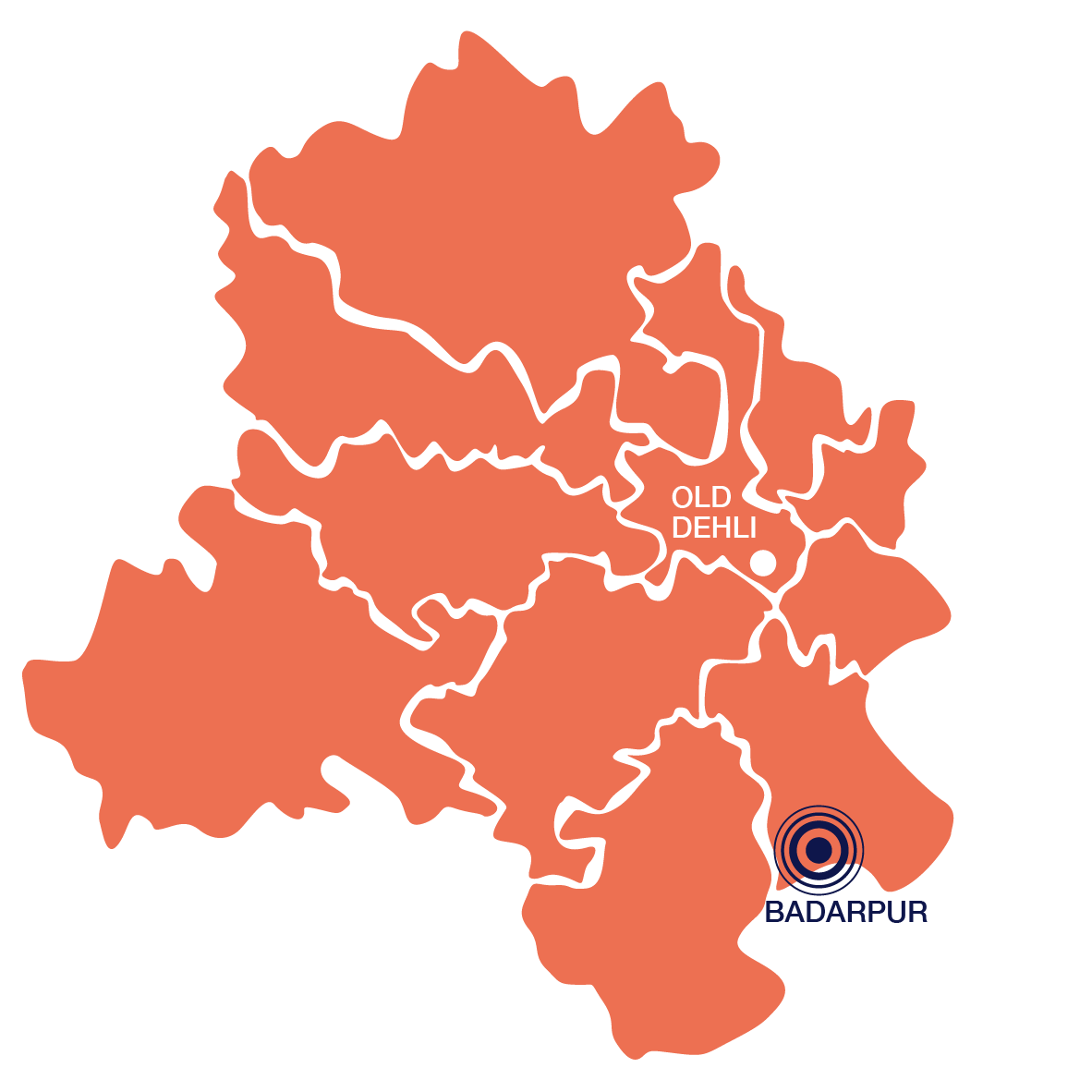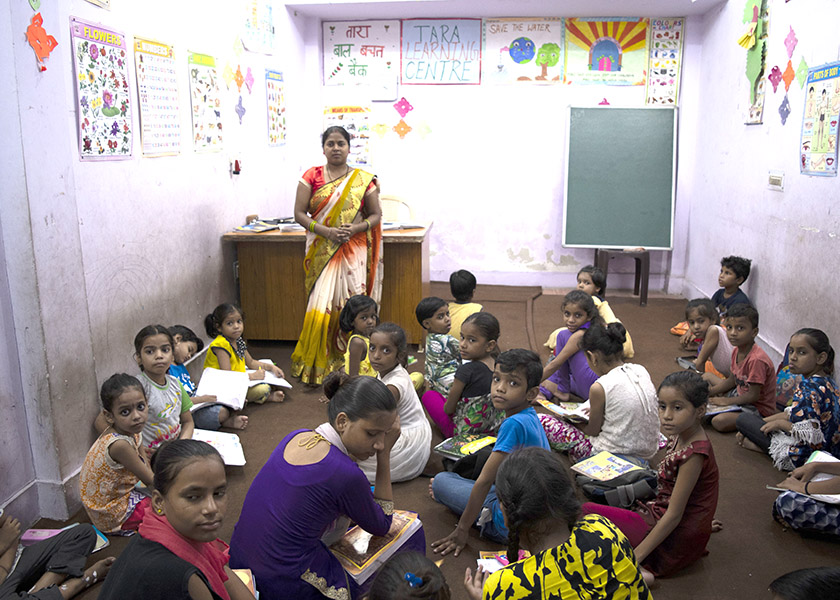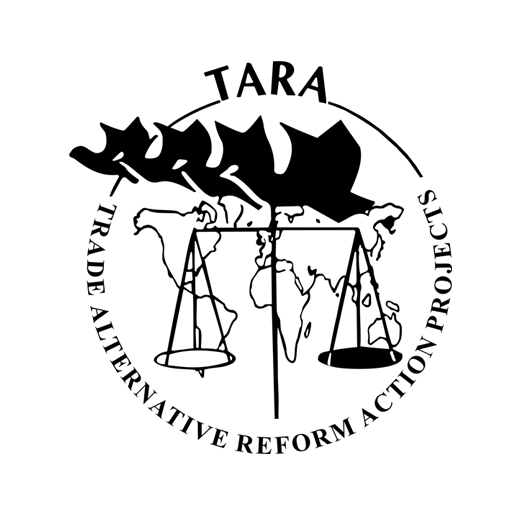Sunita
Uniting artisans for a fairer life
Badarpur, a suburb in crisis
Badarpur is a slum that lies on the south-eastern border of Delhi, bordering the state of Haryana and the huge satellite city of Faridabad, one of the economic engines of this state.
Formerly a caravansary village, Badarpur is located on the ancient Grand Trunk Road, a 2000-year-old path that linked East India to Afghanistan. This road, which used to benefit the village’s prosperity, soon became the source of its problems: after Independence and the massive exodus of non-Muslim peoples from Pakistan, many migrants took this road and settled into towns like Badarpur.
Today Badarpur is far from its golden age, as the ancient village has disappeared under miles of shantytown, which the central government never managed to dislodge. Many sections of the neighborhood have become inaccessible to cars, and most of the surrounding area is now roamed by motorcycles.
The factories that once employed its residents have moved on to cheaper states, and the population faces high unemployment and the rise of drug trafficking and organized crime. To earn a living, many Badarpur residents work in the informal sector, while others are employed by conventional artisan contractors, who pay them very little for their products.
Today, Badarpur is in a precarious situation, stuck between the threat of criminal gangs and that of real estate speculation from Faridabad, which seeks to demolish the slum.

Sunita, a leader in Badarpur
Somewhere in this urban chaos lives a lady with a strong personality, who continues to fight for better living conditions. Her name is Sunita.
In this huge and unequal city that didn’t want to give her a place to live, she managed to lead a comfortable life. To achieve this, Sunita had to overcome many challenges.
When her father died, she looked for a job to help her husband feed their family. Like many artisans, she started out working for conventional contractors, who took advantage of her ignorance of labor rights: her wages were low, and she was seldom paid on time.
In 2005, she discovered TARA Projects, and contacted the association to found a fair-trade workshop. Her business started on a small apartment, until the artisans earned enough money to buy a spacious house to work in.
Their group is made up of beginners and experienced craftsmen, mainly dedicated to jewelry construction, even if some are already attempting to create designs. With a team made up of mainly women and disabled people, they work in 5 to 6 hour days, and earn between 9,000 and 14,000 rupees per month, depending on their level of qualification.

To deal with Badarpur’s problems however, Sunita knew it was necessary to go beyond a constant and decent salary. With TARA, she created a community center, where children are given classes and potential artisans are trained. Unlike conventional workshops, where artisans crumble under the pressure of excessive work, Sunita has taken care to create a space where artisans can discuss and organize themselves to face their daily challenges.
Thus, the group formed a common fund to take small loans: this has been especially useful for medical issues, as the Indian medical service can be quite expensive and corrupt. This system has allowed many people in the community to improve their living conditions and avoid falling into poverty.
"Thanks to fair trade, our community has become more united. We are fighting together to work with dignity and to support the most vulnerable among us."
Manuel-Antonio Monteagudo








